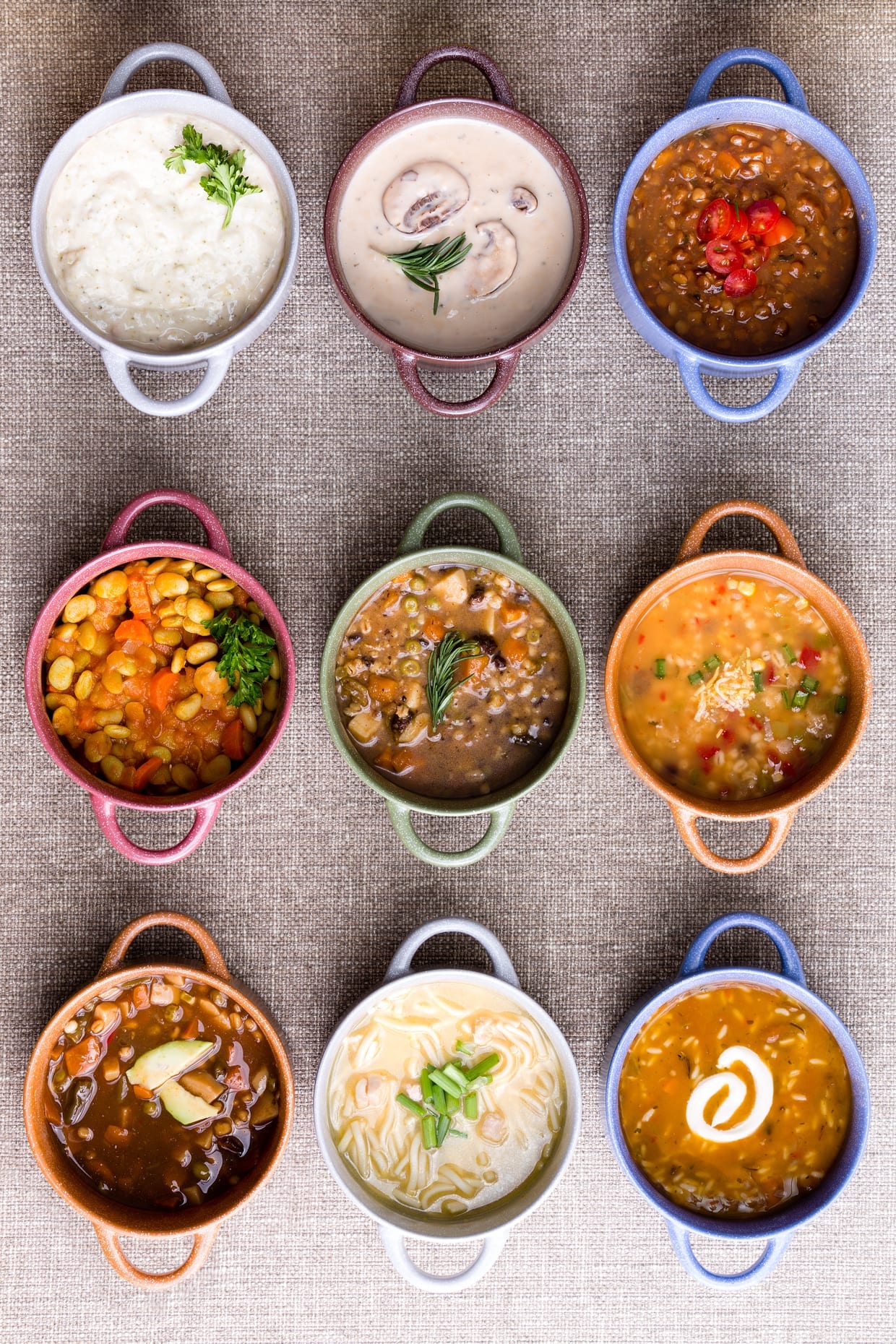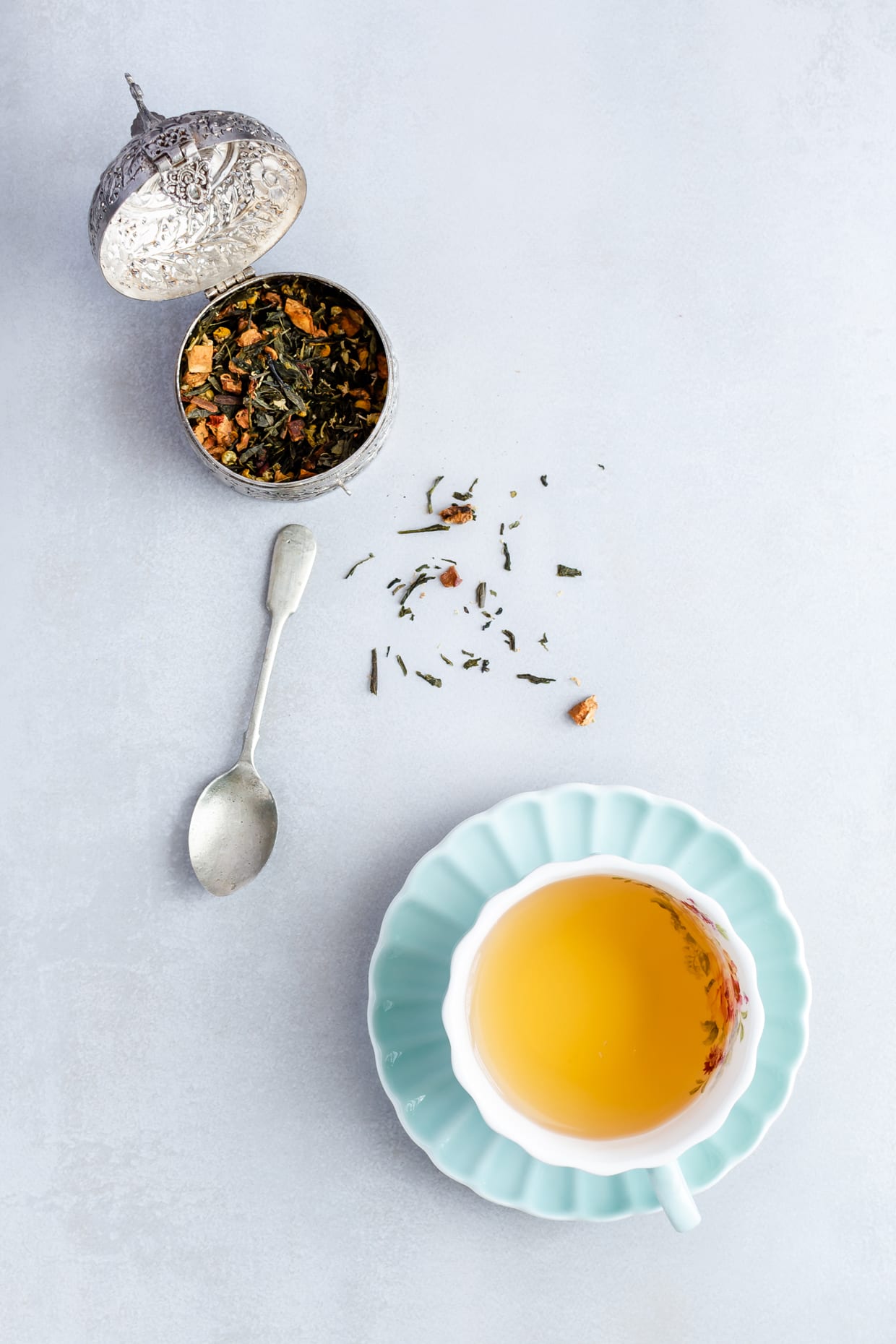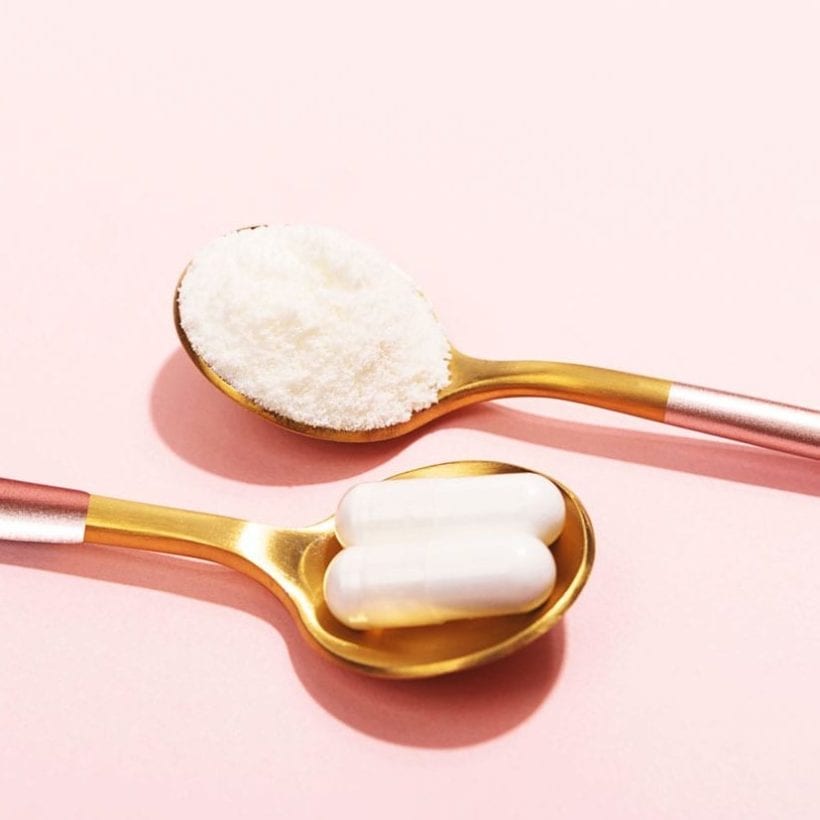Bloating bites any time of the year, but it can feel particularly frustrating in the summer when swimsuits and crop tops are in abundance.
“Bloating is when your stomach expands beyond what is normal for you,” says Maggie Berghoff, a nurse practitioner and functional medicine specialist. “It’s not necessarily gaining weight, or even water weight — your stomach just feels or looks harder or bigger.”
According to Lisa Ganjhu, D.O., a gastroenterologist at NYU Langone Health, the expansion is due to air that is stuck in the gastrointestinal tract. Some of that air is taken in naturally, swallowed with bites of food and gulps of seltzer. In rare cases, bloating that does not go away can be a sign of something more serious, such as ovarian cancer. But for the most part, she says, extra air is caused by three top triggers: food, the gut microbiome and enzymes. “Bloating during and after one’s period is driven by hormones and is most likely water rather than gastrointestinal air,” says Ganjhu.
“The main things are hidden food intolerances, which are different than food allergies,” says Berghoff. “They’re more chronic in nature, rather than acute — it’s not like you’re going to need an EpiPen. It’s when you eat these foods and you get irritability, or headaches or stomach aches.” Some people experience bloating with dairy or grains, while others can’t handle crunchy cruciferous veggies, such as broccoli, or processed foods and drinks.
Oftentimes, says Berghoff, those reactions are caused by gut dysbiosis or an imbalance in your gut microbiome. “It’s when you have the bacterial overload in your gut lining,” she explains. “You may have some bad bacteria or parasites, or you may have too much good bacteria — we always want to maintain balance.”
Bloating is caused by three top triggers: food, the gut microbiome
and enzymes.
The culprit can be, ironically, an overload of what you might think of as good-for-you foods. “When people think they should take a probiotic, eat kimchi and drink kombucha, and they eat all these foods all day, every day, that’s not healthy for you,” warns Berghoff. The sudden flood of so-called “good” bacteria can cause an overgrowth in the intestines, leading to gas, bloating and other frustrating symptoms. The same goes for suddenly binging on fruits and vegetables — the onslaught of fiber can shock your system, leading to bloat. You might try cutting back on probiotic pills and, if the problem persists, ask your doctor for testing to get a better sense of what is going on.
Other reactions are caused by low levels of digestive enzymes, such as amylase and pepsin, which help the body to break down the food you eat. Some people naturally lack certain enzymes, such as those needed to digest lactose in milk — hence lactose intolerance. Others simply eat too quickly. “There are lots of enzymes in our saliva, so the more you chew, the more you’re coating food with those enzymes and breaking it down before it gets to the stomach,” says Nadia Musavvir, N.D., a licensed naturopathic doctor. “Try chewing something 30 times before you swallow,” suggests Musavvir. She knows it sounds extreme but says the practice can help you get in the habit of eating more mindfully and better preps food to be broken down by the digestive system.
If you are unsure of what is causing your tummy troubles — or if you have already ruled out the common causes — you might consider asking your doctor for a panel of blood, saliva or stool tests, which can highlight food sensitivities, bacterial imbalances, inflammation and more. “Testing is the fastest way to know what’s going on,” says Berghoff. “It does cost money, but you’re saving on supplements and all these different diets.” She advises looking for a functional medicine practitioner with experience ordering these kinds of tests, since those without experience may not know how to interpret the results.
In the meantime, say the experts, there are a handful of steps you can take to beat the bloat. Here is where to begin.
Try Cutting out Any Bothersome Foods
“If you notice a pattern with certain foods, remove those and consider an elimination diet,” suggests Musavvir. Any major dietary changes should be discussed with a doctor — they may want to do tests before you remove the food completely — but it is worth seeing if removing a specific ingredient stops the bloat. Common culprits include dairy, wheat, cruciferous vegetables, legumes and processed snacks. If the bloat persists, Ganjhu suggests looking into a low-FODMAP diet, which targets certain hard-to-digest carbohydrates.

Switch from Raw Veggies to Cooked
“I’m not the biggest fan of salads,” says Musavvir, since the insoluble fiber content of raw vegetables can be difficult for your body to digest. “Try switching to warm salads, or dishes where the greens are steamed. Yes, you may lose some nutrient value, but if you’re not digesting it, then you’re not getting the nutrients anyway.” Stay away from crudités as well, and swap cold foods for warmer, cooked meals, such as soups, which can be gentler on the digestive system. The same goes for cold drinks, which Musavvir says can slow down digestion: “Avoiding cold water, especially during and after a meal, is important when dealing with bloat because you don’t want to hinder digestion, contributing to more bloat.”
Travel Well
Ganjhu warns that travel can alter digestion and cause bloating by altering the gut microbiome. Since some also experience bloating while flying, be careful with what you eat — avoid any trigger foods, stay hydrated and try to incorporate tummy-friendly foods and ingredients, such as ginger, into your diet.
Give Bitters a Try
To calm an upset stomach and get digestive juices flowing, Musavvir likes taking drops of herbal bitters containing burdock root, like those from Urban Moonshine. The bitter taste of the herb-based tinctures prompts the salivary glands and digestive tract to produce more enzyme-rich saliva, helping your body to digest the food you eat more easily. Plus, some of the herbs used in the tinctures, including burdock root, have stomach-settling properties.

Sip Some Tea for Dessert
“I’m a big fan of herbal tea after a meal,” says Musavvir. “Teas with peppermint, cardamom, ginger, chamomile, fennel — they’ll enhance circulation to the digestive tract.” Plus, they will give your body a chance to relax and recover after a meal.
Spot-treat the Problem
Even armed with prevention techniques, you may still feel bloated from time to time. If you wake up bloated with a pool party to attend, start chugging room-temperature water “to flush out any excess [water],” says Berghoff. Chugging the water will also stimulate your vagus nerve, which helps with digestion. Heat can help soothe an angry stomach, so consider an Epsom salt bath or warm compress. If you have the time, a walk around the block or quick yoga flow can help work some of the spare air out of your system.
Self-massage can also help to move stagnated air and boost circulation, which can speed up digestion. “I love mixing peppermint essential oil with coconut oil and rubbing it on your belly,” says Berghoff. “Go from left to bottom to right. Rubbing your belly in that direction, even with a dry brush, is great for circulation.” And if all else fails? Remember that bloating is temporary, and something everyone deals with from time to time.
We only recommend products we have independently researched, tested, and loved. If you purchase a product found through our links, Sunday Edit may earn an affiliate commission.







